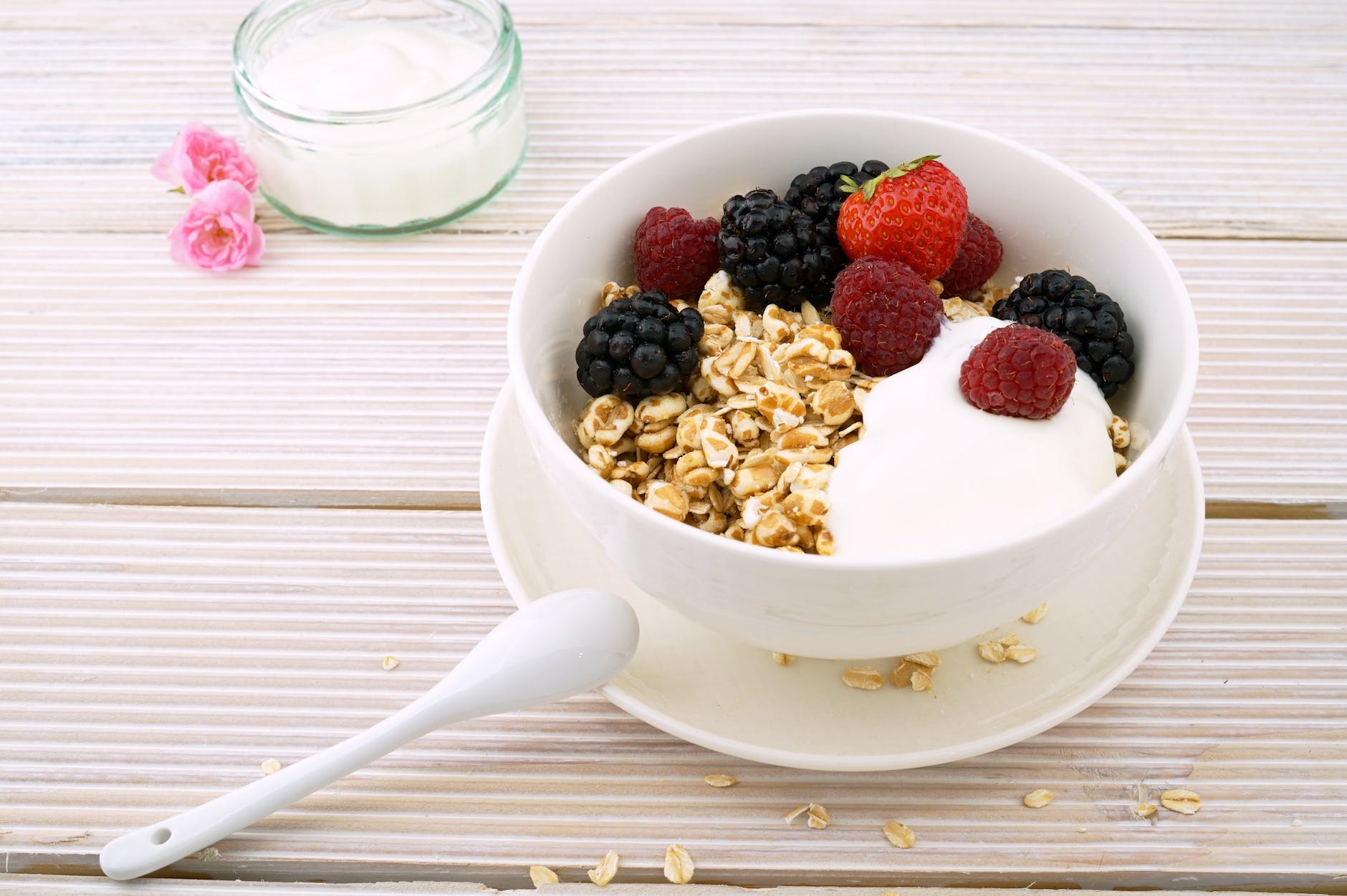
The Surprising Health Benefits of Berries
Table of Contents
Berries are a type of fruit that comes in a variety of colors, sizes, and flavors. The health benefits of berries are not only been delicious but also, they are packed with nutrients that can benefit your overall health.
In this article, we will explore the importance of including berries in your diet.
Nutritional Value of Berries
Berries are an excellent source of vitamins, minerals, and antioxidants. Here are some of the nutrients found in berries:
- Vitamin C: Berries are a rich source of vitamin C, which helps boost your immune system, protect your skin from damage, and promote healthy gums.
- Fiber: Berries are high in fiber, which helps keep you full for longer, improves digestion and reduces the risk of chronic diseases such as heart disease and diabetes.
- Antioxidants: Berries are rich in antioxidants such as anthocyanins, flavonols, and ellagic acid, which protect your cells from damage caused by free radicals.
- Vitamin K: Berries are a good source of vitamin K, which plays a role in blood clotting and bone health.
- Potassium: Berries are a good source of potassium, which helps regulate blood pressure and support heart health.
Disease Prevention
Berries have been shown to have numerous health benefits, including reducing the risk of chronic diseases such as cancer and heart disease. Here’s how:
- Cancer: Berries are high in antioxidants, which help protect your cells from damage caused by free radicals. This damage can lead to the development of cancer. Studies have shown that the antioxidants in berries can help prevent the growth and spread of cancer cells.
- Heart Disease: Berries are also high in fiber, which can help lower cholesterol levels and reduce the risk of heart disease. Studies have shown that eating berries regularly can improve markers of heart health, such as blood pressure and inflammation.
Cognitive Health
Berries may also improve cognitive function and reduce the risk of neurodegenerative diseases such as Alzheimer’s. Here’s how:
- Brain Function: Berries are rich in flavonoids, which have been shown to improve brain function and reduce the risk of cognitive decline.
- Mood: Berries may also have mood-boosting benefits. Studies have shown that the antioxidants in berries can reduce symptoms of depression and anxiety.

Digestive Health
Berries are high in fiber, which can improve digestion and prevent constipation. Here’s how:
- Fiber: The fiber in berries can help keep your digestive system healthy by promoting regular bowel movements and preventing constipation.
- Gut Health: Berries may also have a positive effect on gut health. Studies have shown that the antioxidants in berries can improve the balance of bacteria in the gut and reduce inflammation.
Also read: Digestive Health 101: Understanding how your digestive system works
Fitness and Athletic Performance
Berries may also improve athletic performance and aid in muscle recovery. Here’s how:
- Athletic Performance: The nutrients found in berries, such as vitamin C, potassium, and antioxidants, can help improve athletic performance by reducing muscle damage and inflammation.
- Muscle Recovery: Berries may also aid in muscle recovery by reducing muscle soreness and improving muscle function.
Thus, including berries in your diet can have numerous health benefits. Try incorporating berries into your diet by adding them to your morning oatmeal, smoothies, or yogurt bowls.
Nutrient Content of Berries
Different types of berries contain different nutrients, but they all have a few things in common. Berries are low in calories and high in vitamins, minerals, and antioxidants.
We will explore the nutritional value of berries and the specific health benefits of the nutrients they contain.
Here are some of the nutrients found in common types of berries:
- Blueberries: Blueberries are a rich source of vitamin C, vitamin K, and fiber. They are also high in antioxidants called anthocyanins, which give them their deep blue color.
- Strawberries: Strawberries are a very rich source of potassium, vitamin C, and folate. They are also high in antioxidants called ellagic acid and flavonoids.
- Raspberries: Raspberries are high in fiber, vitamin C, and manganese. They are also a good source of antioxidants such as ellagic acid and anthocyanins.
- Blackberries: Blackberries are a good source of fiber, vitamin C, and vitamin K. They also contain antioxidants such as anthocyanins and ellagic acid.
Health Benefits of Berries
Berries contain a variety of nutrients that can benefit your health in many ways. Here are some of the health benefits of specific nutrients found in berries:
- Antioxidants: Berries are rich in antioxidants, which protect your cells from damage caused by free radicals. Free radicals can lead to oxidative stress, and stress can lead to chronic diseases such as cancer, Alzheimer’s, and heart disease. The antioxidants in berries, such as anthocyanins, flavonols, and ellagic acid, help to neutralize free radicals and reduce inflammation in the body.
- Fiber: Berries are high in fiber, which can help improve digestion, reduce blood sugar levels, and lower cholesterol levels. Fiber also helps you feel full for longer, which can help with weight management.
- Vitamin C: Berries are a good source of vitamin C, which is important for a healthy immune system. Vitamin C also plays a role in collagen production, which is important for healthy skin and joints.
- Vitamin K: Berries are a good source of vitamin K, which is important for blood clotting and bone health. Vitamin K also helps to regulate calcium levels in the body.
- Potassium: Berries are a good source of potassium, which is important for regulating blood pressure and supporting heart health.
Also read: Vitamin Deficiencies 101: Understanding the most common deficiencies
How to Incorporate Berries into Your Diet

Berries are versatile fruit that can be incorporated into your diet in many ways. Here are some ideas:
- Add berries to your morning cereal or oatmeal
- Blend berries into a smoothie
- Top your yogurt with berries
- Make a berry salad with spinach and nuts
- Bake with berries in muffins or bread
In conclusion, berries are delicious and nutritious fruit that can benefit your health in many ways. They are a good source of fiber, antioxidants, vitamins, and minerals that can help reduce the risk of chronic diseases and improve overall health. Try incorporating a variety of berries into your diet to enjoy the many health benefits they offer.
The role of berries in preventing chronic diseases
Berries are known for their delicious taste and vibrant colors, but they are also packed with nutrients that can help prevent chronic diseases such as cancer and heart disease.
Chronic diseases such as cancer and heart disease are among the leading causes of death worldwide.
Fortunately, research has shown that a diet rich in fruits and vegetables can help prevent these diseases. Berries, in particular, are especially beneficial.
Studies have shown that the antioxidants in berries can help prevent cell damage and reduce inflammation, which is both key factors in the development of chronic diseases.
Berries are also high in fiber, which can help lower cholesterol levels and reduce the risk of heart disease. In addition, the flavonoids in berries have been found to have anti-cancer properties.
Also read: Chronic Diseases Causes, Preventions and Management
How Antioxidants in Berries Help to Fight Free Radicals and Reduce Inflammation
Free radicals are unstable oxygen-containing molecules with an uneven number of electrons that can damage cells and contribute to the development of chronic diseases.
While antioxidants are compounds that help to neutralize free radicals and prevent cell damage. Berries are a rich source of antioxidants, including anthocyanins, flavonols, and ellagic acid.
Anthocyanins are pigments that give berries their vibrant colors, and they have been found to contain anti-cancer and anti-inflammatory properties.
Flavonols are another type of antioxidant found in berries. They have been shown to improve cardiovascular health and reduce inflammation.
Ellagic acid is a polyphenol found in berries that have been found to have anti-cancer properties.
In addition to their antioxidant properties, berries are also high in fiber. Fiber can help lower cholesterol levels and reduce inflammation, both of which are important factors in the development of chronic diseases.
How berries can improve cognitive function

Berries are often praised for their health benefits, including their ability to improve cognitive function and reduce the risk of neurodegenerative diseases.
In recent years, researchers have also begun to explore the potential benefits of berries on mood and stress levels.
Let’s take a look at how berries can benefit cognitive function, reduce the risk of neurodegenerative diseases, and potentially improve mood and reduce stress levels.
Berries and Cognitive Function
Studies have shown that eating berries can improve cognitive function, including memory and learning ability.
This is due to the high levels of flavonoids found in berries, which are known to improve brain function. One study found that blueberry consumption improved cognitive function in older adults who were experiencing cognitive decline.
Another study found that daily consumption of strawberries improved cognitive function in healthy young adults.
Berries and Neurodegenerative Diseases
Neurodegenerative diseases, such as Alzheimer’s and Parkinson’s, are characterized by the gradual loss of nerve cells in the brain.
Studies have suggested that the antioxidants found in berries may help to protect the brain against the damage caused by free radicals, which are a major contributor to neurodegenerative diseases.
One study found that consuming strawberries and blueberries were associated with a slower rate of cognitive decline in older adults.
Also read: 8 Causes Of Sleep Disorder And Their Remedies
Berries and Mood
Research has suggested that the consumption of berries may also have a positive impact on mood.
One study found that the consumption of berries was associated with a reduction in depressive symptoms in adults.
Another study found that blueberries improved mood and reduced the negative effects of stress in young adults.
Berries and Stress
Stress is a common issue in today’s fast-paced society, and it can harm both physical and mental health.
Studies have suggested that the antioxidants found in berries may help to reduce stress levels. One study found that consuming blueberries reduced stress levels in college students.
How the fiber in berries can improve digestion
Berries are well known for their high antioxidant content and numerous health benefits. However, what many people do not realize is that berries are also a great source of fiber, which plays an important role in maintaining digestive health.
The fiber in Berries and Digestion
Fibers are a type of carbohydrate that the body can not digest. Instead, it passes through the digestive system mostly intact.
This helps to add bulk to the stool and aids in the movement of waste through the digestive tract. Berries are a great source of fiber, with raspberries containing the highest amount, followed closely by blackberries, strawberries, and blueberries.

Berries and Constipation
Constipation is a common digestive problem that can be caused by a lack of fiber in the diet. Fiber helps to add bulk to the stool and promotes regular bowel movements.
Berries are a great source of fiber and can be an effective natural remedy for constipation. Additionally, the high water content in berries can also help to soften the stool and make it easier to pass.
Berries and Gut Health
The human gut is home to the microbiome, which is a collection of trillions of microorganisms. These microorganisms are responsible for maintaining the overall health and well-being of a person.
Studies have suggested that the consumption of berries may have a positive impact on gut health by promoting the growth of beneficial bacteria in the microbiome.
Berries and the Microbiome
The microbiome is a complex ecosystem that is made up of a variety of different microorganisms, including bacteria, viruses, and fungi.
Studies have suggested that the consumption of berries may help to promote the growth of beneficial bacteria in the microbiome, which can have a positive impact on overall health.
Additionally, the high fiber content in berries can help to provide fuel for the beneficial bacteria in the gut.
How the nutrients in berries can improve athletic performance
Berries are often touted for their numerous health benefits, but did you know that they can also be beneficial for athletic performance and recovery?
Berries are packed with nutrients that can help boost energy, reduce inflammation, and aid in muscle recovery.
In this section, we will discuss how the nutrients in berries can improve athletic performance and recovery, as well as the potential benefits of berries for muscle building and weight loss.
Berries and Athletic Performance
Athletic performance can be improved by the nutrients in berries, including vitamins, minerals, and antioxidants. Berries contain high levels of vitamin C, which helps to support the immune system and reduce inflammation.
In addition, the high levels of antioxidants in berries can help to reduce oxidative stress and damage to cells, which can lead to improved recovery times and reduced muscle soreness.
Also read: 5 Simple Exercises for Immediate Lower Back Pain Relief
Berries and Muscle Recovery
Muscle recovery is an important aspect of athletic performance, and the nutrients in berries can help to speed up the recovery process.
The high levels of antioxidants in berries can help to reduce inflammation and oxidative stress, which can lead to faster recovery times and reduced muscle soreness.
Additionally, the high levels of vitamin C in berries can help to support the immune system and promote healing.
Berries and Muscle Building
Berries can also be beneficial for muscle building due to their high levels of protein, fiber, and antioxidants.
Protein is important for building and repairing muscles, while fiber helps to support healthy digestion and prevent inflammation.
Additionally, the antioxidants in berries can help to reduce oxidative stress, which can lead to improved recovery times and better muscle growth.
Berries and Weight Loss
Berries can be a great addition to a weight loss diet due to their high levels of fiber, which helps to keep you feeling full and satisfied for longer periods.
In addition, the high levels of antioxidants in berries can help to reduce inflammation and support healthy digestion, which can aid in weight loss efforts.
Continue reading: The Health Benefits of Turmeric: More than just a spice


